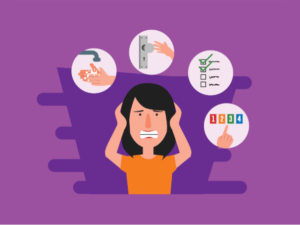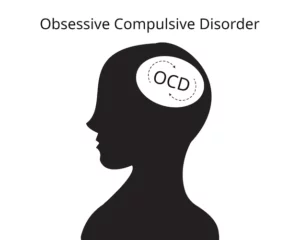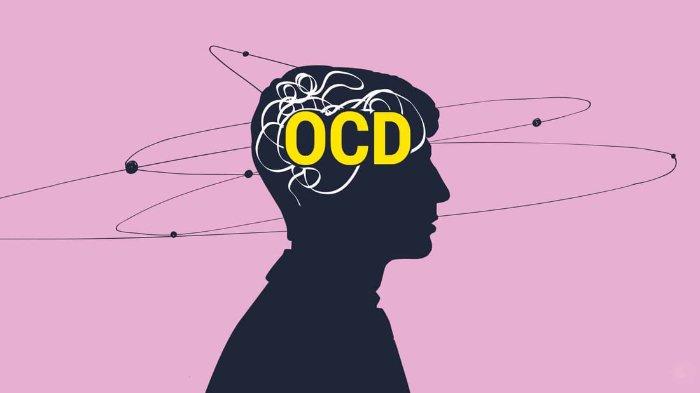Did you know that there is a link between OCD and other mental disorders? In fact, OCD is often diagnosed in conjunction with other psychiatric conditions. In this blog post, we will discuss the link between OCD and mental disorder, as well as some of the most common co-occurring conditions. We will also provide information on how to get help if you or someone you love is struggling with OCD.
Contents
What Is OCD?
 Obsessive-Compulsive Disorder (OCD) is a mental health disorder. It is often characterized by intrusive thoughts that produce uneasiness, apprehension, fear, or worry. Repetitive behaviors aimed at reducing the associated anxiety. And/or by a combination of such obsessions and compulsions.
Obsessive-Compulsive Disorder (OCD) is a mental health disorder. It is often characterized by intrusive thoughts that produce uneasiness, apprehension, fear, or worry. Repetitive behaviors aimed at reducing the associated anxiety. And/or by a combination of such obsessions and compulsions.
This is believed that OCD is due to a combination of genetic, environmental, and psychological factors. It can often interfere with daily activities and cause significant distress. A few common symptoms may include:
- excessive washing or cleaning
- recurring thoughts or images about certain things
- persistent checking behaviors
- ritualistic counting; and/or hoarding
If you are having difficulty managing OCD symptoms, it is important to seek help from a qualified mental health professional. With the right treatment and support, you can find relief from your OCD symptoms and improve your quality of life.
How Are OCD And Mental Disorders Connected?
Mental disorders, such as OCD (Obsessive-Compulsive Disorder), are connected in many ways. OCD is classified as an anxiety disorder and is characterized by intrusive, repetitive thoughts or behaviors that cause distress and interfere with daily life. People with OCD may feel overwhelmed by their thoughts or actions. And try to control them through various coping mechanisms.
Research suggests that OCD is connected to other mental disorders such as depression, bipolar disorder, and ADHD. Studies have found that people with OCD are more likely to have a comorbid mental disorder than those without OCD. Comorbidity refers to the presence of two or more chronic medical conditions in an individual at the same time.
The reason behind this comorbidity is still unclear. But some researchers believe that OCD and other mental disorders may have similar underlying causes. For example, people with OCD often report having a family history of mental illness, suggesting that genetics could play a role in the development of both disorders.
Other theories suggest that environmental factors such as childhood trauma and stress can increase the risk for both OCD and other mental disorders. It is also possible that the coping strategies used to manage OCD can lead to further emotional struggles, such as depression and anxiety.
Regardless of the cause, it is important for anyone affected by OCD and mental disorder issues to reach out for help. Treatment options are available and can help improve quality of life.
What Mental Disorders Go With OCD?
 OCD is often accompanied by several other mental disorders. A few of the most common conditions that can occur alongside OCD include:
OCD is often accompanied by several other mental disorders. A few of the most common conditions that can occur alongside OCD include:
- Anxiety disorders – People with OCD often experience increased levels of anxiety, which can manifest in a variety of ways. This includes generalized anxiety disorder, social anxiety disorder, panic disorder, and obsessive-compulsive personality disorder.
- Depression – Many people with OCD struggle with depression. This can include major depressive disorder, dysthymia, and seasonal affective disorder.
- Substance Abuse – Some people turn to drugs or alcohol as a way to cope with their OCD symptoms. Substance abuse can make OCD worse, leading to a vicious cycle of dependence and addiction.
- Bipolar Disorder – This is a serious mental health condition characterized by extreme shifts in mood. People with OCD are at risk for bipolar disorder, and it can be difficult to differentiate between the two conditions.
- Eating Disorders – OCD often goes hand-in-hand with disordered eating habits. This includes anorexia nervosa, bulimia nervosa, binge eating disorder, and orthorexia.
It is important to note that not everyone with OCD will experience all of these conditions. However, it is essential to be aware of the potential for comorbidity when treating OCD. Treating the underlying mental health condition can help reduce symptoms and improve the overall quality of life.
OCD and mental disorders are treatable conditions. If you or someone you know is struggling with OCD and mental health issues, reach out for help today. Seeking treatment can make a world of difference in managing symptoms and improving overall well-being.
What Happens If OCD And Mental Disorders Left Untreated?
If left untreated, OCD and mental disorders can have serious consequences in daily life. Some of these might include:
- Increased social isolation and loneliness, as symptoms such as avoidance make it harder to engage in meaningful relationships with others.
- Impaired work performance or difficulty completing schoolwork due to the amount of time spent on ritualistic activities or preoccupation with intrusive thoughts.
- Financial difficulties can result from loss of job/employment opportunities.
- Increased feelings of depression, anxiety, and other negative emotions.
- Substance abuse or self-harming behaviors in an attempt to cope with the symptoms of OCD and mental illness.
- Physical health problems due to stress and lack of adequate self-care.
These consequences may not be immediate, but they can become more severe over time if OCD and mental disorders are left untreated. Therefore, it is important to seek treatment as soon as possible to prevent further harm and disruption of daily life.
Professional help is available in the form of psychotherapy or prescription medications that address symptoms and help manage difficult thoughts and behaviors. Just be sure to find a mental health practitioner who is familiar with OCD and mental illness to ensure that you are getting the best possible treatment. With the right support, it is possible to learn how to manage symptoms more effectively and lead a fulfilling life.
How Can You Manage Both OCD And Mental Disorders?
OCD and mental disorders are conditions that can have a significant impact on your life. It is important to find ways to manage them both in order to lead a healthier, happier life. Here are some tips for managing both OCD and mental disorders:
- Stay informed about the latest research and treatments for OCD and mental health disorders so that you can make informed decisions about your care.
- If you can, seek the help of a mental health professional who is an expert in treating OCD and other mental disorders to ensure you get the best treatment possible.
- Make sure to practice relaxation techniques like meditation or yoga on a regular basis to reduce stress and anxiety levels associated with both conditions.
- Consider joining a support group or attending therapy sessions to help you manage the symptoms of both OCD and mental illnesses.
- Set realistic goals for yourself and break larger tasks into smaller, more manageable chunks so that it feels less overwhelming to complete them.
- Get adequate sleep each night and watch what you eat in order to maintain a healthy lifestyle.
- Talk to friends and family about how you’re feeling so they can understand and provide support when needed.
- Avoid unhealthy coping mechanisms like drugs or alcohol, which can make symptoms worse.
By taking the time to manage both OCD and mental disorders, you can lead a healthier and more fulfilling life. These tips should help you get started on the right path. Remember to consult your healthcare provider if you have any questions or concerns about managing both conditions. If you are feeling overwhelmed, do not hesitate to seek professional help.
Is OCD Considered A Mental Disability?
 While OCD is a mental disorder, it is not usually considered to be a disability on its own. OCD can interfere with daily life and relationships. But there are many treatment options available that can help individuals manage their symptoms and lead successful lives. People with OCD who feel that their symptoms significantly impair their ability to function may consider as having a disability.
While OCD is a mental disorder, it is not usually considered to be a disability on its own. OCD can interfere with daily life and relationships. But there are many treatment options available that can help individuals manage their symptoms and lead successful lives. People with OCD who feel that their symptoms significantly impair their ability to function may consider as having a disability.
Otherwise, the conditions of OCD, an obsessive-compulsive disorder, can be managed through cognitive-behavioral therapy, mindfulness techniques, and sometimes medication. Depending on the individual’s needs and preferences, a combination of some or all of these treatments may be used on an ongoing basis to help manage symptoms.
It is important to remember that people with OCD have the same rights as anyone else and should not be discriminated against because of their condition. People with OCD should be given the same respect and given the same opportunities for success in life as anyone else. With proper treatment, people with OCD can still lead fulfilling lives despite their disorder.
Conclusion
In conclusion, OCD and mental disorders are very serious matters and should be taken care of. It is important to seek help and treatments if you are experiencing symptoms of mental illness. Although it can be difficult, there are many resources available to get the right treatment for yourself or someone you know with OCD.
Taking the time to understand what OCD is, how it affects people, and how to manage it with the help of a doctor is essential. With the right support and treatment, those suffering from OCD can lead healthier and happier lives.
Don’t hesitate to contact us immediately for more information! OCD is a mental health disorder characterized by obsessions and compulsions. Contact us today if you have any queries regarding OCD treatment, or ERP therapy the experienced therapists at OCDMantra can help: Book a trial OCD therapy session


